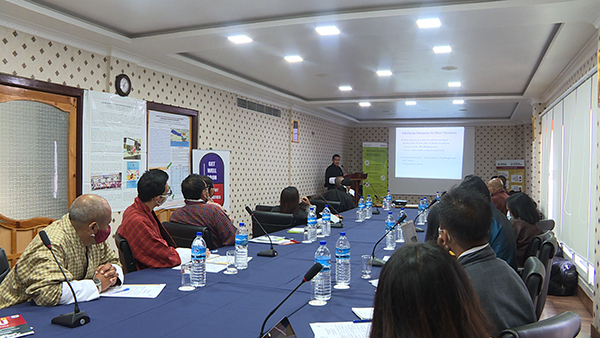 Antimicrobials help in saving millions of lives, reducing the burden of disease in people and animals, improved quality of life, and contribute to improved food production and safety. However, according to the health experts, misuse and overuse of antimicrobials have led to resistance and might not be effective in future illnesses. As an emerging global issue, this was once again highlighted as Bhutan observed the World Antimicrobial Awareness Week which concluded yesterday.
Antimicrobials help in saving millions of lives, reducing the burden of disease in people and animals, improved quality of life, and contribute to improved food production and safety. However, according to the health experts, misuse and overuse of antimicrobials have led to resistance and might not be effective in future illnesses. As an emerging global issue, this was once again highlighted as Bhutan observed the World Antimicrobial Awareness Week which concluded yesterday.
 Antimicrobials are a special class of medicine used for infections that can be caused by bacteria, viruses, fungi, and parasites.
Antimicrobials are a special class of medicine used for infections that can be caused by bacteria, viruses, fungi, and parasites.
According to the Health Ministry, common and life-threatening infections like pneumonia, gonorrhoea, HIV, tuberculosis, and malaria are increasingly becoming untreatable because of antimicrobial resistance.
More than 70 people developed multidrug-resistance Tuberculosis last year. This, according to the ministry, is due to self-medication and patients failing to complete the full course of antimicrobials as prescribed.
“So, if you stop taking after two to three days, then the bacteria which has been knocked off will again grow back, or maybe they will just wake up again and make you more serious and you may need to be hospitalized and when you are hospitalized, if you are given amoxicillin again, this amoxicillin which you have stopped few days, prior to your hospitalization will not work anymore,” said Dr Tshokey, the Consultant Clinical Microbiologist at the JDWNRH.
Amoxicillin, as an antibiotic, is the most common antimicrobial agent used in the country today. It is a drug used to treat bacterial infections.
Similarly, the responsible and prudent use of antimicrobials in animals is advised as well.
Dr NK Thapa, an Animal Health Specialist, says antibiotics are fed to animals for treatment, prevention, and control of diseases. It is used in feeds for growth promotion as well.
“Antimicrobial-resistant in animals are triggered by inappropriate use where we say that they are treated without the prescription from the veterans and also they do not complete their course on time and sometimes they use for improving the growth of the food animals like poultry and pigs. So, this also causes resistance in bacteria,” he said.
He added the use of antibiotics in animal feeds can impact the health of people via the food chain.
In Bhutan, against the threat of antimicrobial resistance, a National Action Plan to combat antimicrobial resistance through the One Health approach guides the country. The plan aims to promote rational use of antimicrobial mainly through an effective antimicrobial stewardship program, public education on antimicrobial resistance and, regulation of the sale of antibiotics among others.
More than 16 million units of antibiotics including those for animals were imported into the country in the 2019 to 2020 fiscal year.
Pema Seldon Tshering









